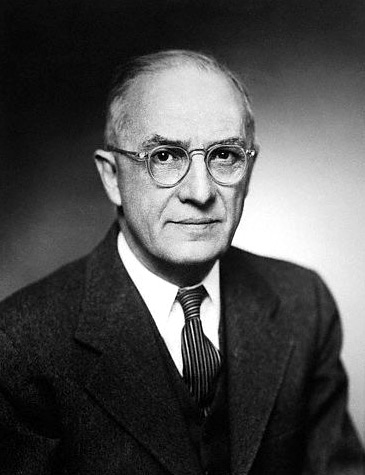遊遍美國五十州
英語學習內容包括視譯,交替傳譯和同聲傳譯三部分Lesson Eight
Section One: News in Brief
1. Two years of sensitive negotiations paid off today as seventy former Cuban political prisoners arrived in the
2. President Reagan today unveiled plans for a nine hundred million dollar plan to reduce drug abuse in the
3. Israeli Prime Minister Shimon Peres is in
第一節 簡明新聞
1. 經過2年的敏感談判今天終於有了結果70名前古巴政治犯抵達美國。所有這些囚犯都已至少在古巴監獄服刑10年,有些人自卡斯特羅1959年開始執政時起就被關押。這次的釋放部分是由法國的水下探險家雅克庫斯托以及美國的羅馬天主教主教代表安排的。
2. 裏根總統今天公布了一項9億美元的計劃以減少美國的毒品濫用狀況。它包括50億美元的加強美國邊界特別是在西南邊境的禁毒執法力度。該計劃還要求對一些聯邦工作人員進行強製藥物檢測。全國公共電台布倫達威爾遜報道。“作為國家打擊毒品的十字軍行動的一部分,裏根總統今天簽署了一項行政命令,要求在敏感職務上的聯邦工作人員接受毒品檢測。這項法令涉及到接觸機密資料的雇員,由總統任命的官員,執法官員,以及任何從事的公眾影響公共健康和安全以及國家安全的聯邦工作人員。但是,政府機構的負責人可能要求另外的工作人員參加測試。凡是第二次藥檢發現有繼續使用違禁藥物反應的聯邦雇員會被自動辭退。所有的藥檢計劃,預計費用高達5600萬美元,但政府官員還不能給出有多少員工涉及這項強製計劃的一個大概數字。我布倫達威爾遜。”
3. 以色列總理佩雷斯正在華盛頓與包括裏根總統在內的美國領導人舉行會談。早些時候佩雷斯會見了國務卿喬治舒爾茨。此後,兩人告訴記者蘇聯不會在中東和談占有一席之地,因為它與以色列沒有外交關係,而且它也不允許蘇聯的猶太人自由移民。
部分旅居美國地前古巴政治犯
Section Two: News in Detail
'We noted favorable trends in the
第二節 詳細新聞 以色列總理西蒙佩雷斯訪問華盛頓
以色列總理西蒙佩雷斯本周在華盛頓和高級別美國官員進行商談。他的到訪是在他上周與埃及總統穆巴拉克舉行首腦會議之後。今天下午,以色列領導人與裏根總統在白宮會麵。全國公共電台伊麗莎白科爾頓報道。
以色列的佩雷斯來到華盛頓的幾周前,他在計劃辭去總理一職,由現任外長伊紮克沙米爾接任。這次輪換早在2年前由以色列民族團結政府安排已定。但預計獲得的成果要比前來告別訪問得佩雷斯總理最近取得的重要成果要多一些,因為佩雷斯最近的成就是在以色列人和阿拉伯人之間實現了和平。今天下午裏根總統在白宮說,中東和平進程是討論的主要議題。他稱讚總理佩雷斯在這個方麵做出的的努力。
“我們注意到中東地區的積極趨勢,不僅僅是以色列和阿拉伯人民所渴望和平,也是這一地區域的領導人在和平進程中注入的新的活力和建設性活動。沒有人做得比總理佩雷斯更多並接近最終目標。他的遠見,他的領導能力,他的執著應該在這裏受到高度讚賞。”裏根總統說,他與總理佩雷斯的議程的其他議題是美國對以色列的經濟援助,國際恐怖主義和蘇聯的猶太人等。總統向以色列領導人保證,蘇聯的猶太人的困境仍是美國和蘇聯之間重要的議題。我是伊麗莎白科爾頓在華盛頓報道。
(
Section Three: Special Report
A chapbook arrived in the mail a while back from the
The selected works by finalists in the “William Carlos Williams Poetry Competition,” named for
This is just to say I have eaten the plums
That were in the ice box,
And which you were probably saving for breakfast.
Forgive me; they were delicious,
So sweet and so cold.
"Let me read it again."
And he did. William Carlos Williams, who died in 1963, has been an inspiration to patients and physicians. So, it's fitting that the
"I'm sure a lot more are closet poets and aren't willing yet to submit. We hope they do." Martin Cohn, director of the Human Values in Medicine's program at the
“I guess it falls into categories that all poets write about, including lovers and friends and sorrowful kinds of situations, but then there is also the experience that they're most intimate with, which is medical school itself, which is also a theme, and also relationships with patients.”
Poetry by ten medical students is presented in the chapbook, accompanied by biographical notes on each of the poets. Kurt Beal, at the University of Texas Health Science Center at
"I write to remember, to find, to uncover, to unfold. I have learned that poetry is music. And I write because I cannot sing."
Martin Cohn has some samples of poems from the chapbook. P. C. Bowman of the Medical College of Virginia School of Medicine wrote "Cartographer about his Wife."
When I watch you watching yourselves in the mirror,
Undress not with caution but with care,
Peeling the swimsuit from shoulders and breasts,
Exposing the belly flat from its vortex to the ribs,
Ordered as architecture. The hip swell
That breaks my geometer's heart.
It is a map of some impossible country,
Whose turns widen to vistas and stations
So sudden that I cannot breathe or comprehend
How I have wandered there and kept my life.
"Wonderful poem."
"Ya."
"But he doesn't have to be a doctor to have written it."
"No. That's true."
"Give us one that could only be written by a doctor."
"OK. There is a poem, another one on anatomy, that was written by Diane Roston, who, as the other poets, has a very interesting background. She danced for a number of years in a regional company and also had taken courses in journalism. And she writes of an experience with a cadaver, and the life of this cadaver. And she ends the poem with the following verse.
Now student to anatomy.
Cleave and mark this slab
Of thirty-one-year-old Caucasian female flesh,
Limbs, thorax, cranium, muscle by rigid muscle.
Disassemble this motorcycle victim's every part,
As if so gray a matter never wore a flashing ruby dress.
I notice there's so much of that in this poetry by the medical students, the reminders to themselves of humanity here. It's not just arteries; it's not just anatomy. There are humans."
"That's right. And we feel we're just trying to do our part to encourage them to remember. Many students shuck off the arts and humanities when they enter medical school, and even if we can keep them involved, even if it's a thread of involvement, or vicarious involvement by reading, not necessarily writing - that's what we are trying to do."
At the
第三節 特別報道
訪問東北俄亥俄大學醫學院計劃主管馬丁科恩——談醫學院學生的詩作
收到的一本詩集是從東北俄亥俄大學醫學院的郵寄出來的。詩集是本小冊子匯編的作品都是由學生創作的。這是學校的“醫學人類價值計劃”的一部分。全國公共廣播電台蘇珊斯滕伯格翻閱過這些詩歌。
作品是在威廉卡洛斯威廉姆斯詩歌比賽的決賽中選出的,比賽是以美國的偉大詩人醫生,新澤西州鄉村醫生威廉卡洛斯威廉姆斯的名字命名的,他曾經用他的處方紙打草稿作詩,威廉卡洛斯威廉姆斯寫過短詩,有時是快詩。
這隻是說我吃了梅子
那些在冰盒裏的,
你可以省來做早餐。
請原諒我,他們真香,
如此的甜蜜如此的涼。
“讓我讀一遍吧。”
他這樣做了。威廉卡洛斯威廉斯,1963年去世,一直是病人和醫生的激勵者。因此,東北俄亥俄大學醫學院以他的名字命名詩歌比賽是恰當的。現在已經是第五屆了,比賽對這個國家所有醫學院學生開放,但隻有百分之一,有幾百個左右的人參加比賽。
“我確信有更多的壁櫥詩人(不發表自己作品的詩人),不願意提交作品。我們希望他們參與。”醫學院“醫學人類價值”計劃主管馬丁科恩說,“學生們的詩歌隻圍繞著幾個主題為中心。”
“我想對所有詩人所寫內容進行分類,包括寫戀人與朋友的,以及寫各種哀傷情形的,但也有條經驗,和他們最親密相關的是醫學院本身這樣一個主題,還有寫病患者關係的。”
小冊子裏現存10名醫學院學生的詩歌,每個詩人都附有完整的自傳。庫特貝爾,在德克薩斯大學衛生科學中心休斯敦大學,他這樣形容道。
“我寫作是為了記憶,發現,發掘和展開。據我了解,詩是音樂。我寫詩是因為我不會唱歌。”
馬丁科恩已經得到小冊子中的一些詩歌樣本。包括弗吉尼亞醫學院醫學院的P.C.鮑曼寫的“他妻子的繪圖員。”
當我看著你在看著鏡中的你自己,
脫衣時不靠謹慎而靠關切,
從肩膀和胸部褪下泳裝,
露出平坦的肚子其旋渦直到肋骨,
似有序的建築。髖關節的隆起
破碎了我幾何學家般的心。
好似一些不存在的國家地圖,
他的風景和車站不斷加寬
因此突然間我不能呼吸或思想
我多麽的想知道如何生活在那裏。
“好詩呀。”
“是的。”
“但他不一定非得是個醫生才寫出這樣的詩。”
“是的,你說得對。”
“給我們推薦一首隻有醫生能寫出的詩吧。”
“行,有首詩,另一首關於解剖的,這是由另一位有著很有趣的背景的丹尼羅斯通寫下的。她在一個地方公司跳了好幾年舞,也上過新聞課程。她寫過和一具屍體打交道的經曆,和這具屍體的生活。她用下麵幾句結束了全詩。
現在學生們來解剖
割開並標記這塊板
是屬於31歲高加索女人的血肉
四肢,胸部,頭骨,僵硬的肌肉的肌肉
拆下這個摩托車禍受害者的各部分。
好似這具灰色的東西從來沒有穿過一件閃亮的紅寶石色的禮服。
我注意這首醫學院學生寫的詩裏有非常多的那個,就是提醒他們自己這裏麵的人道問題。不僅是動脈,這不僅僅是解剖。他們是人。”
“正確。而且我們感覺我們隻是盡我們的職責鼓勵他們記住這點。許多學生進入醫學院便把藝術和人道分裂開來,即使我們可以讓他們參與,即使是一係列的參與,或由閱讀來替代參與,沒有必要的寫作 - 這正是我們正在嚐試做的。”
在東北俄亥俄大學醫學院,馬丁科恩稱,沒有證據表明,詩歌比藥物能產生更好的效果,但他相信這能幫助學生更好地了解自己和他們的患者。所以威廉卡洛斯威廉斯詩歌比賽一直在繼續。我是蘇珊斯坦博格。
This is just to say I have eaten the plums
That were in the ice box
And which you were probably saving for breakfast.
Forgive me; they were delicious,
So sweet and so cold.
William Carlos Williams 1883-1963
Susan Stamberg host of NPR radio






